A recent Amnesty International report on education in South Africa paints a picture of a basic education system that is still failing learners from poorer communities.
The report singled out Gauteng and Eastern Cape as provinces with numerous examples of “schools with poor infrastructure and lacking basic facilities”.
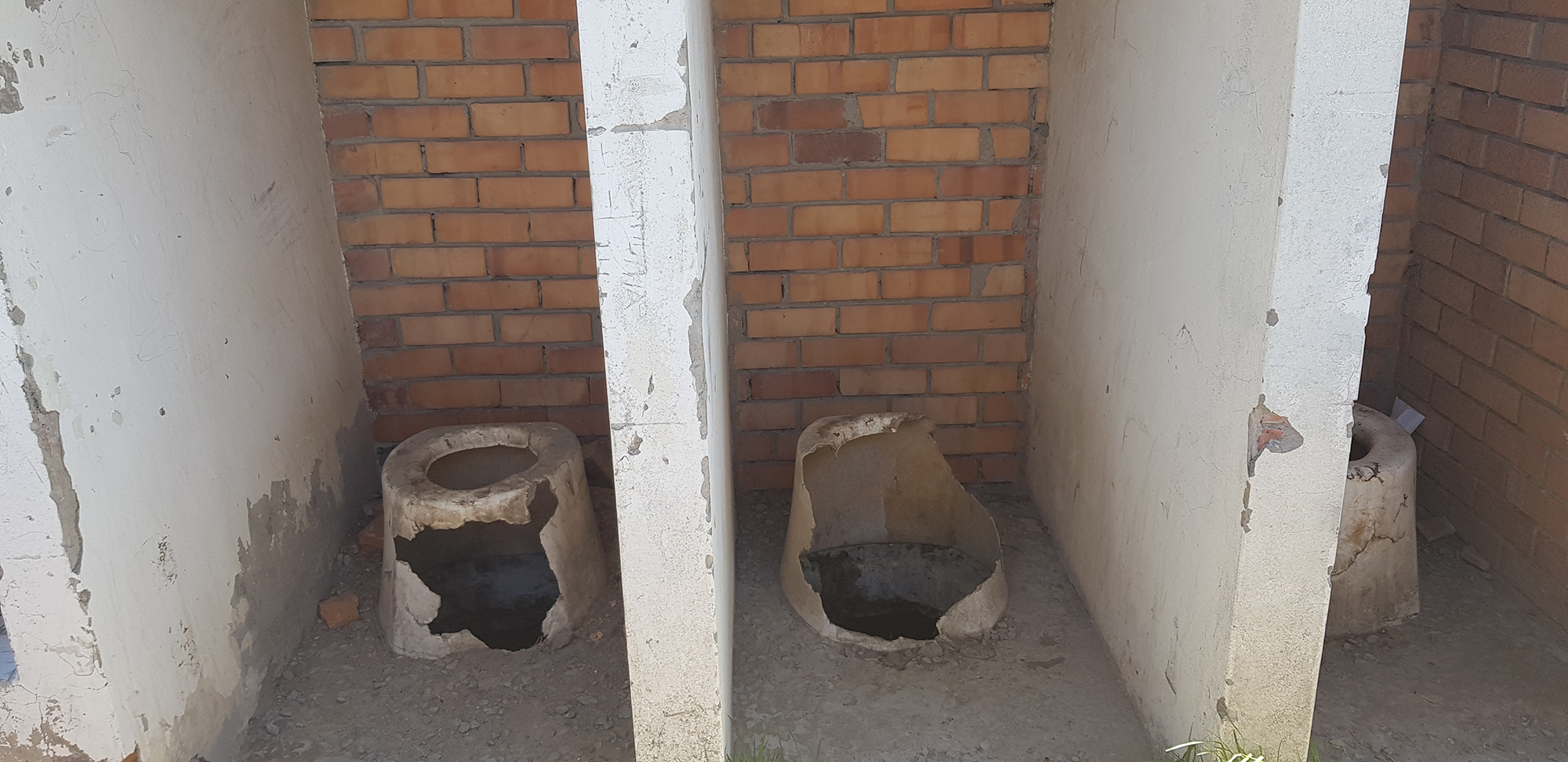
Imiqhayi School, Mount Coke, King Williams Town, Eastern Cape. (Photo: Amnesty International)
Titled Broken and Unequal: The State of Education in South Africa, the report delves into the issues that still confront public schools in the country, bearing in mind the historical context of the education system. The research was carried out between November 2017 and June 2019 and relied on desktop research from reports by the media, government, non-governmental organisations, human rights bodies and academics.
Infrastructure challenges in the two provinces include poorly maintained buildings that have never been renovated, with many of them dating back to the apartheid era.
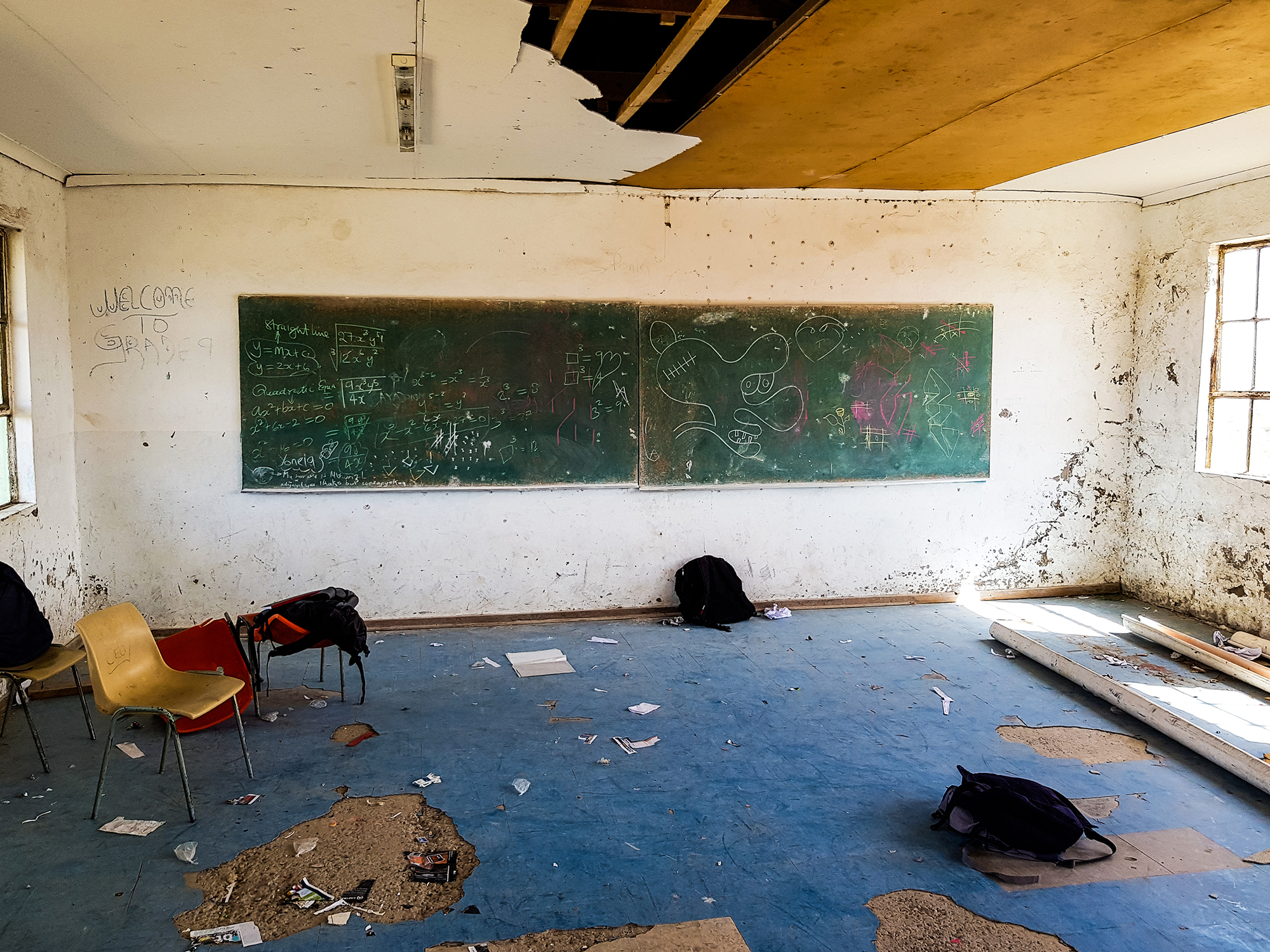
July High School, near Peddie, Eastern Cape —classroom in use. (Photo: Amnesty International)
Additionally, unsafe, unhygienic and poorly maintained sanitation facilities were also flagged as a recurring challenge in both provinces, with some schools relying on pit toilets only.
“Despite some limited improvements, the condition of infrastructure in many schools is still appalling and delays in infrastructure improvements remain a major obstacle to the realisation of the right to education for millions of learners,” the report states.
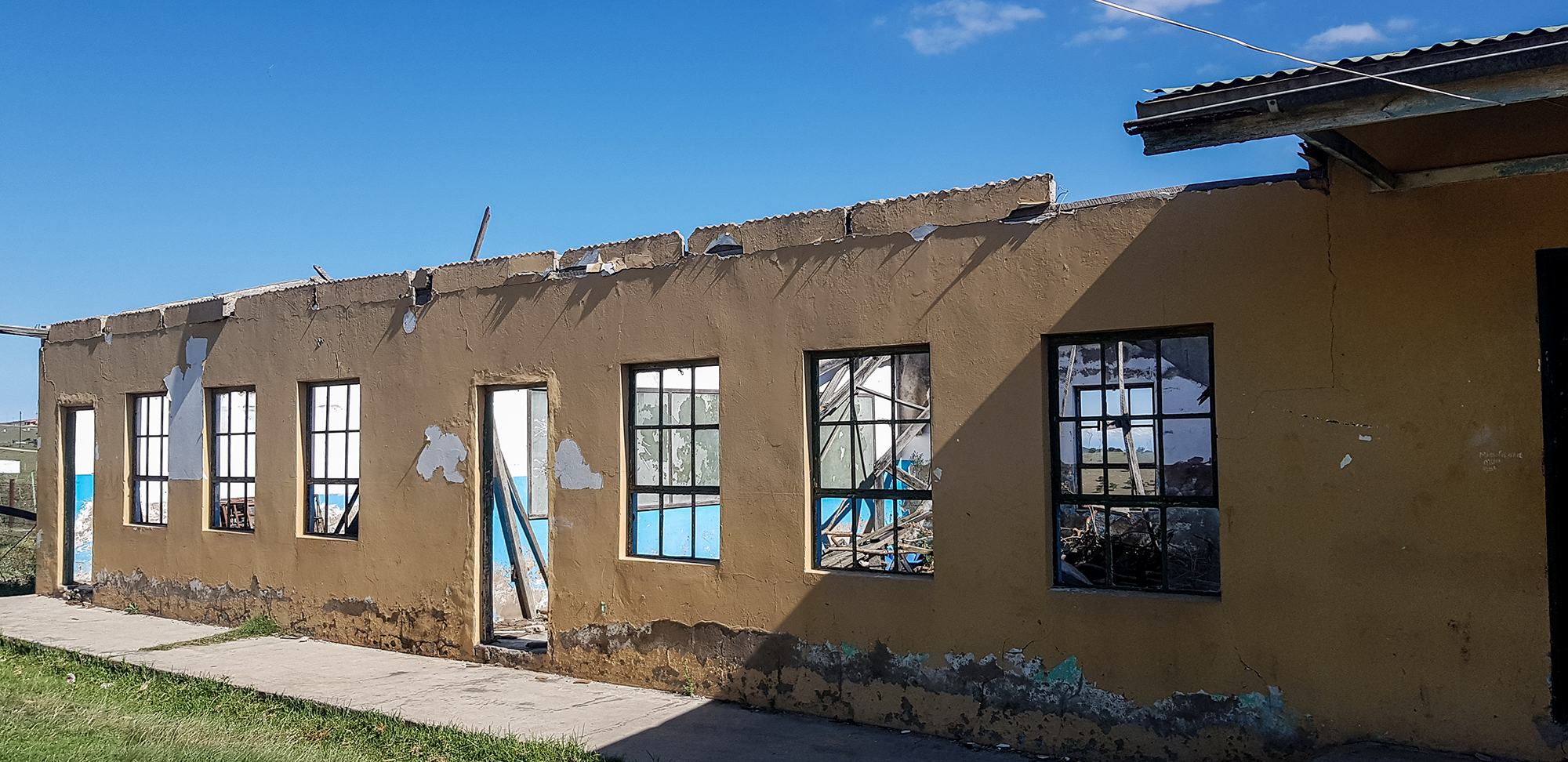
Imiqhayi School, Mount Coke, King Williams Town, Eastern Cape – Classroom destroyed by a tornado in 2014 and still not replaced. (Photo: Amnesty International)
Notwithstanding the fact that the research was conducted using a small sample size of 12 no-fee public schools in Gauteng and 26 in the Eastern Cape, data from the schools sampled painted a gruesome image, especially when government-speak has turned to the Fourth Industrial Revolution and digitalising schools.
Data from the National Education Infrastructure Management System report (NEIMS) for 2018 shows that out of 23,471 public schools, 20,071 have no laboratory and 18,019 have no library.
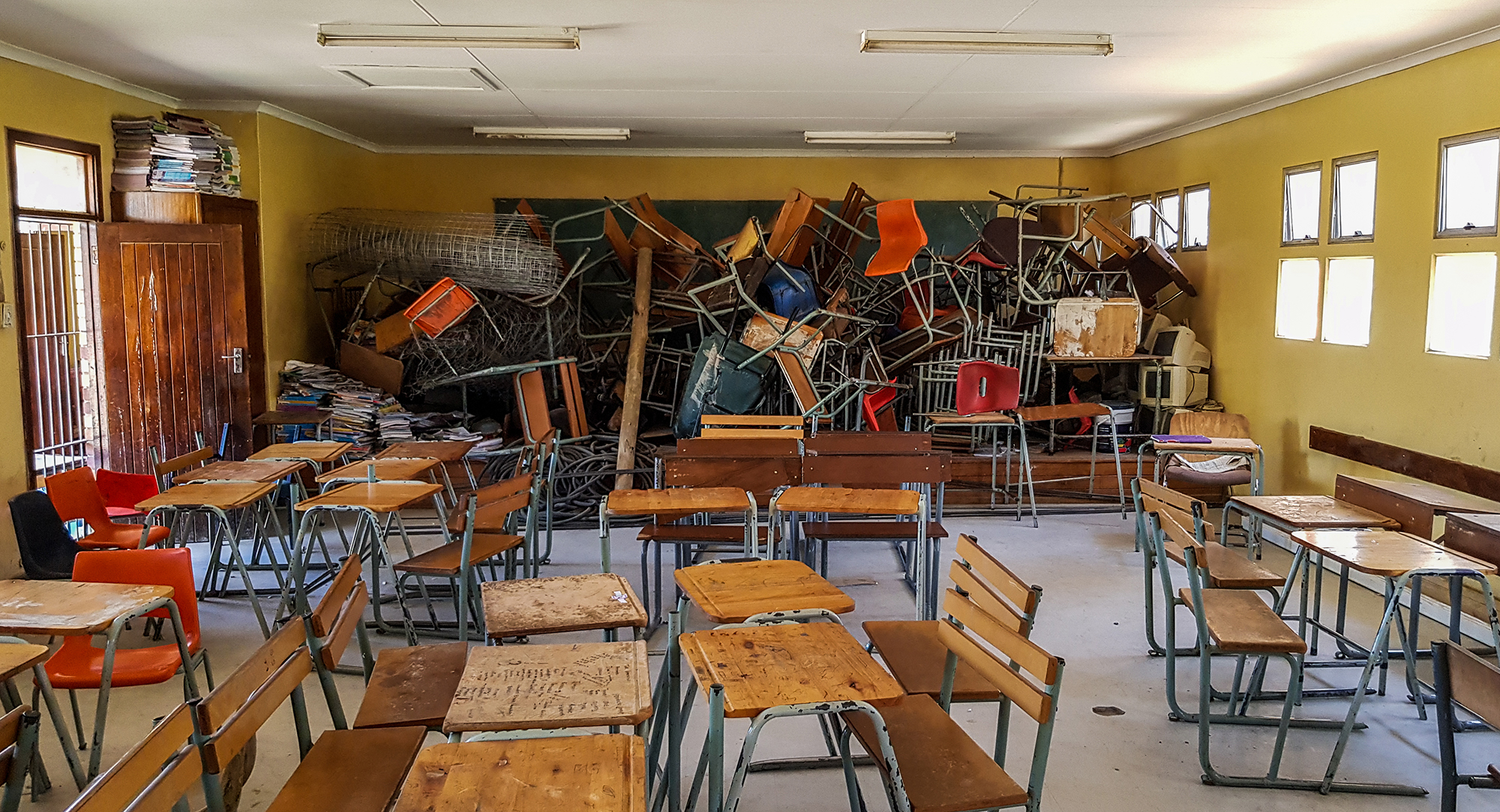
Bulelani Primary School, Hanover, Bhishu, Eastern Cape. (Photo: Amnesty International)
Moreover, 37 schools have no sanitation facilities at all while 4,358 are still using pit latrines and 269 have no electricity.
Amnesty International’s report points to the fact that schools confronted with the worst infrastructure challenges “are largely in areas formerly set aside for black South Africans”.
And though the stench of the country’s past still lingers, the democratic government’s failure to properly govern and account for money spent (in a country where the education budget is a significant proportion of government expenditure at 16.7% as of 2019/20) continues to perpetuate the inequalities in the education system.
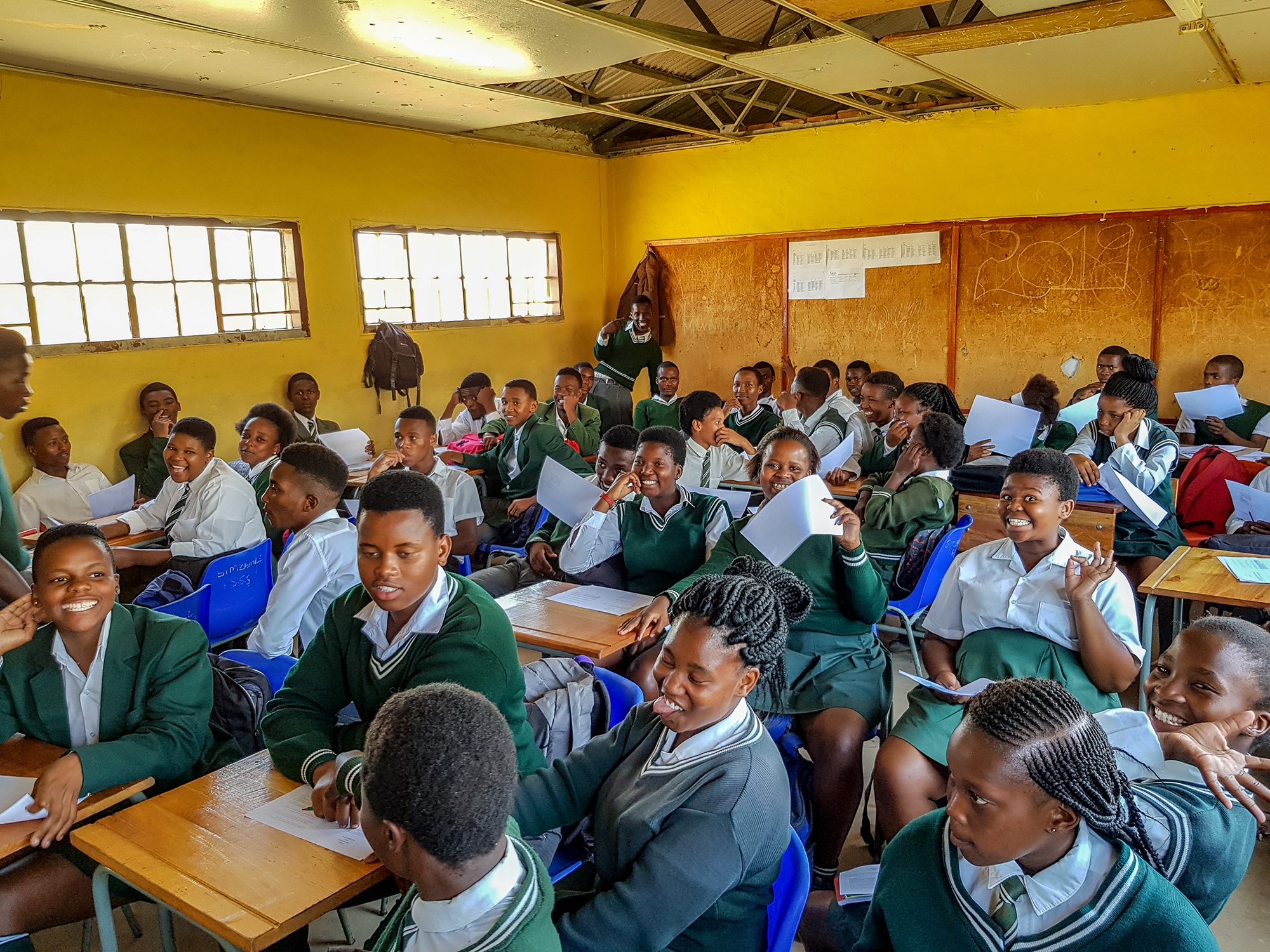
Simzamile Secondary School, Ndevana, Eastern Cape. (Photo: Amnesty International)
“A child’s experience of education in South Africa still very much depends on where they are born, how wealthy they are and the colour of their skin,” the report noted.
Of the schools sampled in Gauteng, 48% of the participants said no schools had been renovated. In Eastern Cape, 62% of participants indicated that few to no schools had been renovated in the last 20 years.
When measured against the Minimum Norms and Standards for School Infrastructure, the report says many of these shortcomings identified during the research are in breach of the legally binding regulations.
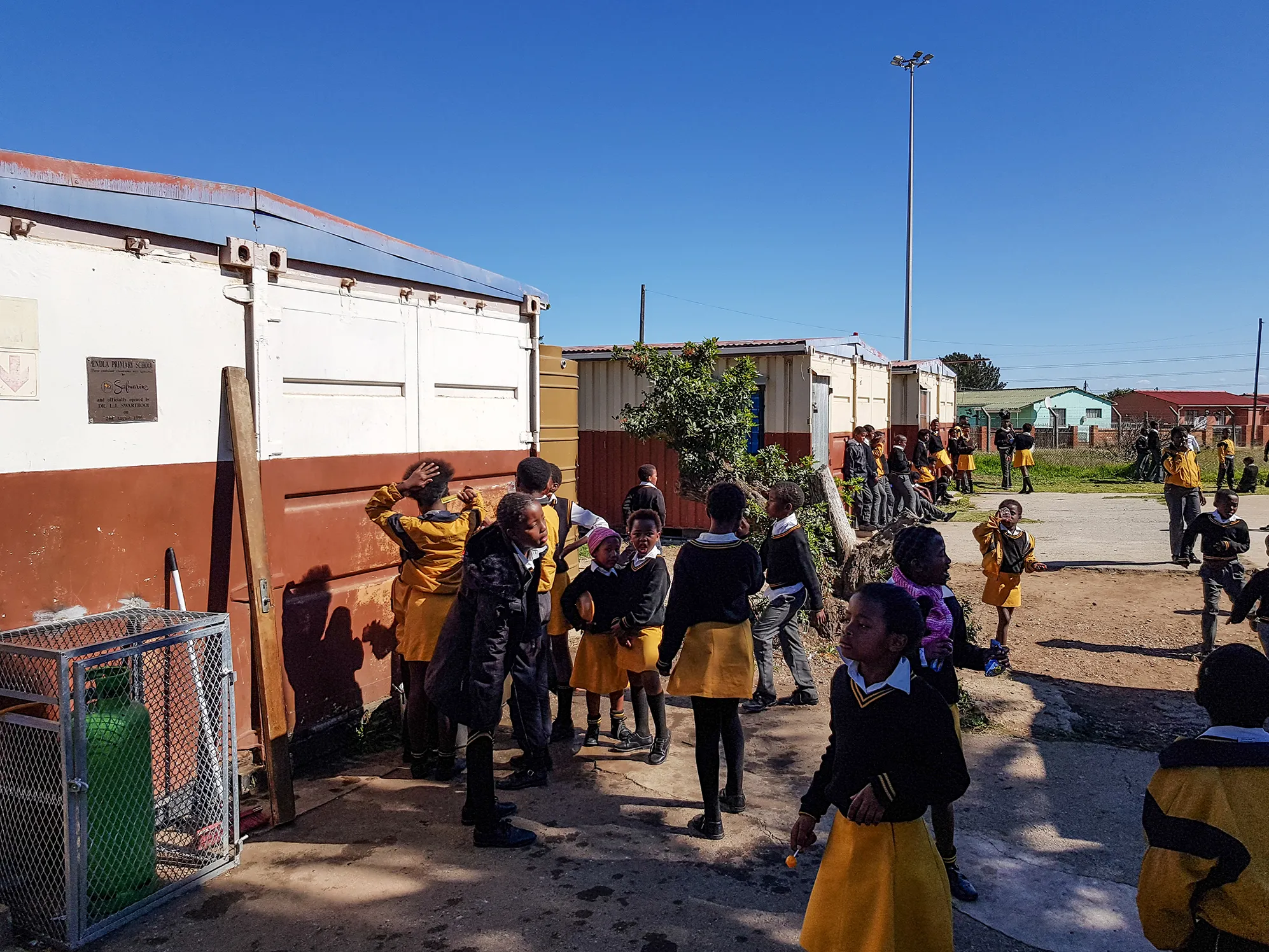
Pendla Primary School, New Brighton, Eastern Cape. (Photo: Amnesty International)
The norms and standards were enacted in 2013 and bind provincial education departments to ensuring every school has water, electricity, internet, functioning and adequate sanitation, safe classrooms with a maximum of 40 learners, security, and thereafter libraries, laboratories, and sports facilities.
The national education department is not only in violation of the norms and standards, but it is also not on track to achieve the aims stated in the regulations.
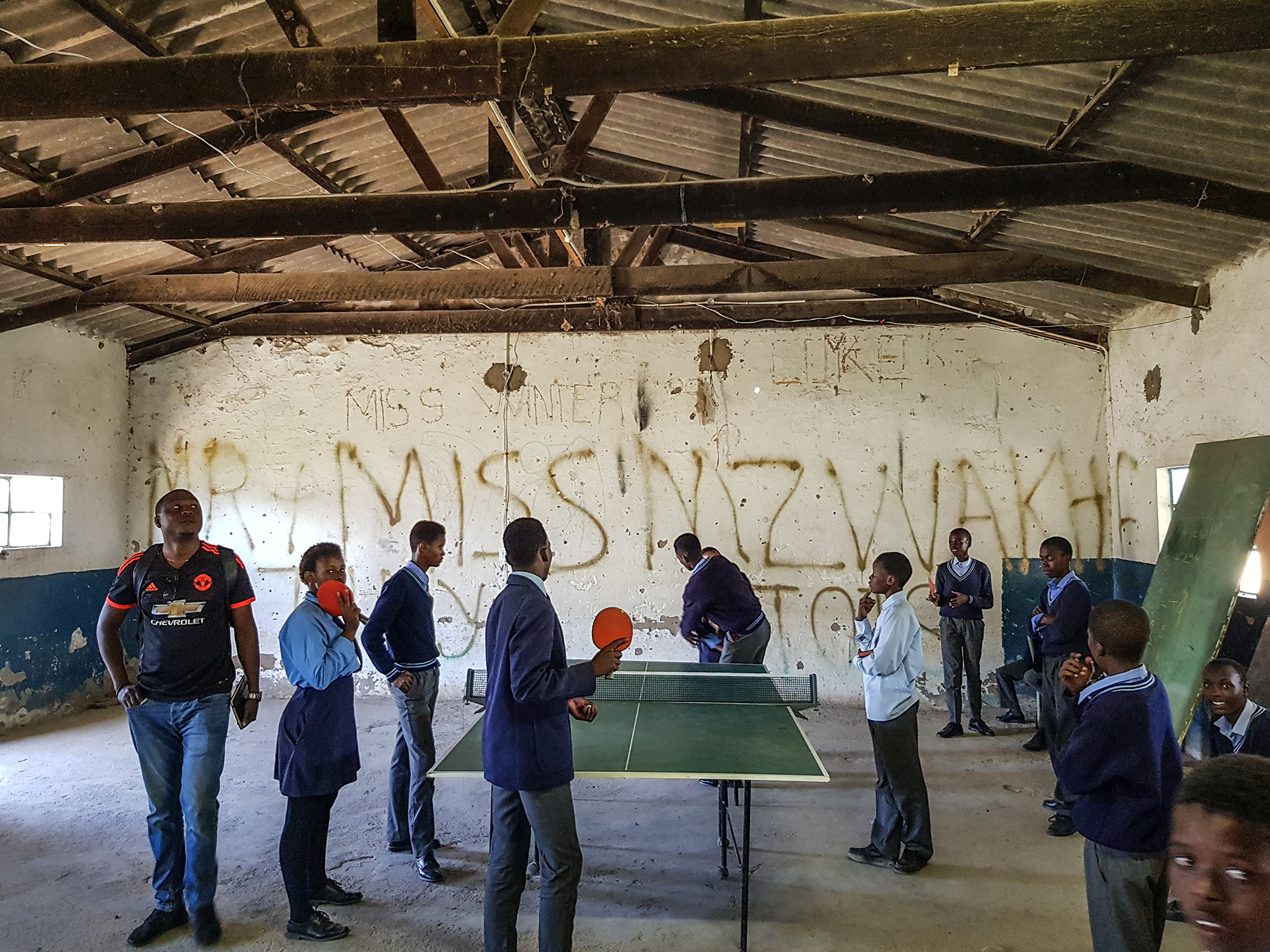
Imiqhayi School, Mount Coke, King Williams Town, Eastern Cape. (Photo: Amnesty International)
According to the report, the education department committed to ensuring that by 29 November 2020 all schools will have perimeter fencing, classrooms, electricity, sanitation, and water.
Amnesty International’s executive director, Shenilla Mohamed, said, “The main duty-bearer is government. We need to stop making excuses and hold people accountable.”
On Thursday 13 February, the president will again present the State of the Nation Address, and promises will be made, but learners will continue to bear the brunt of an education system that does not favour the poor. DM





















 Become an Insider
Become an Insider